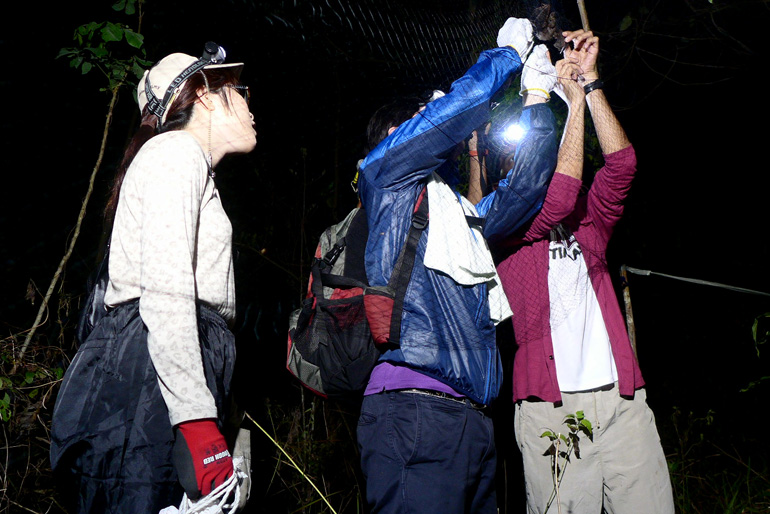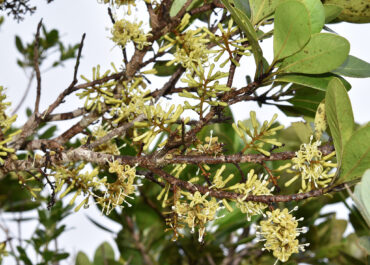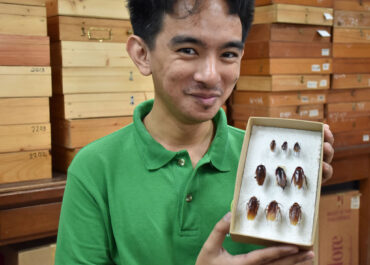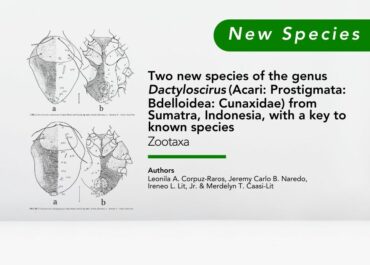Mt. Makiling bats carry protozoa which can cause stomach illness

Bats captured in Mt. Makiling last February 2015 and studied by a team of researchers from five Japanese institutions, UPLB College of Veterinary Medicine and the Museum of Natural History were found to harbor protozoa that can cause gastrointestinal infections.
Protozoan parasites are common causes of many diseases in both domestic and wild animals, as well as in humans. Bats are naturally infected with zoonotic pathogens and two genera of these, the Cryptosporidium and Eimeria, were detected either solely or in tandem in most of the bat species collected in four sampling sites inside the UPLB campus.
Cryptosporidium species is one of the most prevalent protozoa that cause waterborne diarrheal disease outbreaks worldwide. These protozoa produce spores or oocysts that are shed by the host and survive for lengthy periods outside its host. Because the oocysts can resist even chlorine-based disinfectants, it can contaminate drinking water. Once ingested, Cryptosporidium can infect the gastrointestinal and respiratory tracts, causing watery diarrhea with or without cough.
Meanwhile, Eimeria infections or coccidiosis are common in the Philippines, having been documented in dogs, cats, chicken, swine, cattle, carabao, sheep and goats since the 1930s. It spreads from one animal to another by contact with infected feces or ingestion of infected tissue. Severe cases of coccidiosis may present as bloody diarrhea.
By using molecular techniques, the researchers were able to determine that six of eight species of bats (Cynopterus brachyotis, Eonycteris spelaea, Ptenochirus jagori, Rousettus amplexicaudatus, Scotophilus kuhlii and Rhinolophus inops) were positive for Cryptosporidium or Eimeria.
According to the researchers, bat Cryptosporidium and Eimeria are relatively unstudied in terms of epidemiology and distribution. The researchers’ detection of the protozoans in Philippine bats via molecular procedures is considered the first in the country and is a further step to assess whether Philippine bats serve as reservoirs of different species of the two protozoa.
Although these protozoans pose risks of transmission to humans, the findings, according to the authors, are insufficient to determine the potential health risk; hence further biological and genetic data are necessary.
In an email interview, Satoshi Taniguchi, one of the co-authors from the National Institute of Infectious Diseases, Tokyo, Japan said that “although bat Cryptosporidium and Eimeria were detected in the study, it cannot be said that these protozoa are the causative agent for humans and bats.”
The group’s research has just recently been published in the Springer-Verlag Berlin Heidelberg’ journal Parasitology Research (DOI 10.1007/s00436-016-4926-4) this February 2016.
Search
Archives
Categories
- Announcement (21)
- Feature (21)
- News (141)
- Press Release (55)
- Research (4)
- Services (3)



